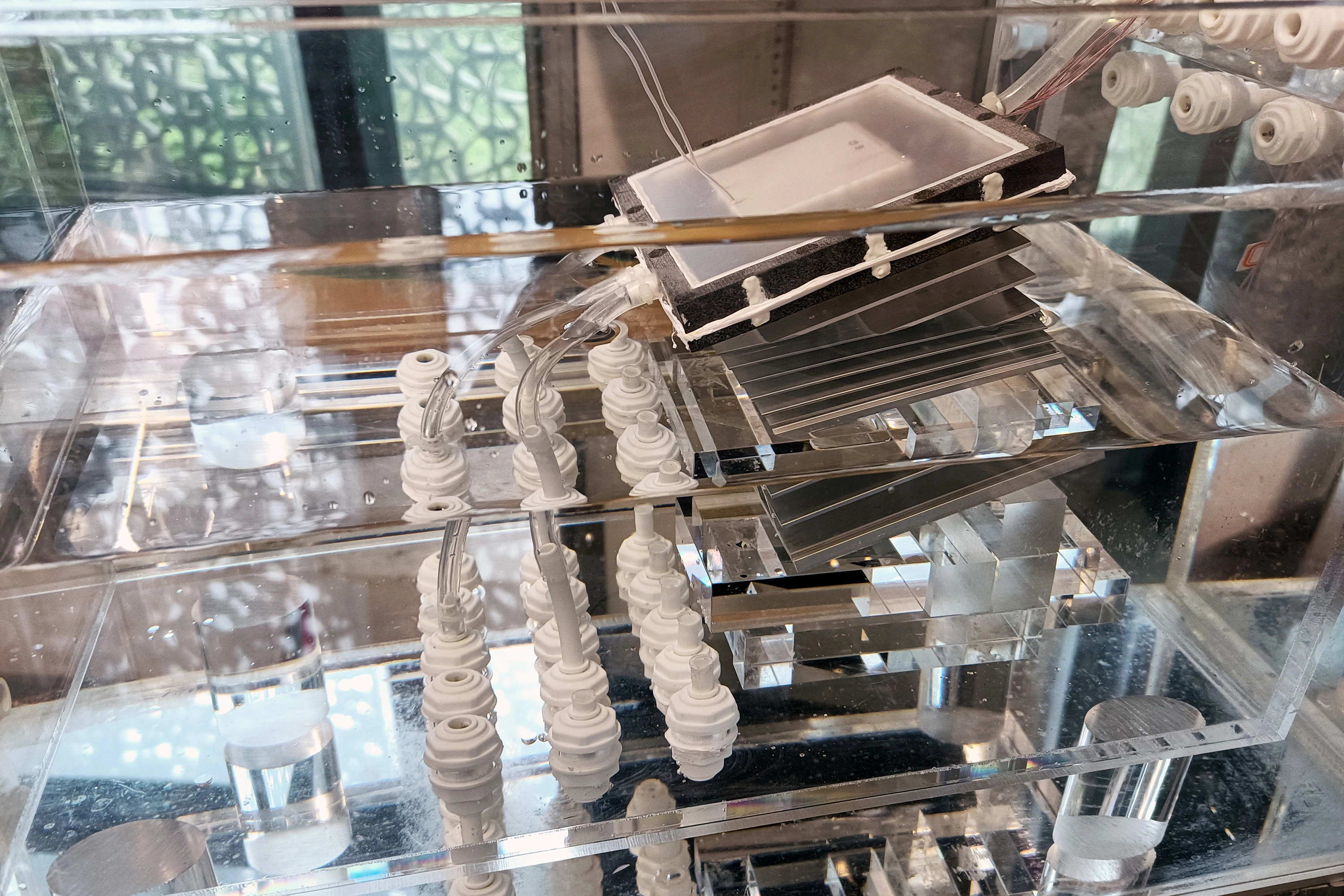Engineers at MIT and in China are aiming to turn seawater into drinking water with a completely passive device that is inspired by the ocean, and powered by the sun.
In a paper appearing today in the journal Joule, the team outlines the design for a new solar desalination system that takes in saltwater and heats it with natural sunlight.
The researchers estimate that if the system is scaled up to the size of a small suitcase, it could produce about 4 to 6 liters of drinking water per hour and last several years before requiring replacement parts. At this scale and performance, the system could produce drinking water at a rate and price that is cheaper than tap water.



Without the motivation to make a profit, few entities are both willing and able to engage in the considerable expense, risk, and effort required to spin up a mass production line.
I think “thirst” and “hunger” predate “profit” as a motive by several hundred million years.
Yeah, Neanderthals were famous for their efficient large-scale manufacturing capabilities
What a fantastic point. You can’t get a lion to chase a gazelle without a credit card these days.
Weird, there was lots of mass production in the Soviet Union. Please explain.
Governments are one of the few entities that are able (and occasionally willing) to spin up a mass production endeavor without the profit motive necessarily present.
Sometimes they essentially do this themselves via federal employees, or contractors. Sometimes they achieve the ends indirectly by incentivizing private companies with subsidies and the like.
Regardless of how it gets done, everyone shows up for work in the morning motivated by something. In the Soviet Union this was often the fear of imprisonment or other such violence, which was a really shitty situation for a lot of people to be in. In the modern world, it’s typically the hope that the money made will pay for food and housing and such.
The capitalist entity was the state, the political elites the ones hoarding wealth, everyone else getting the shaft.
How can the state be the capitalist entity? That makes no sense. The state controlling the means of production is literally what communism is.
when, all of human history must be like 250 years old…